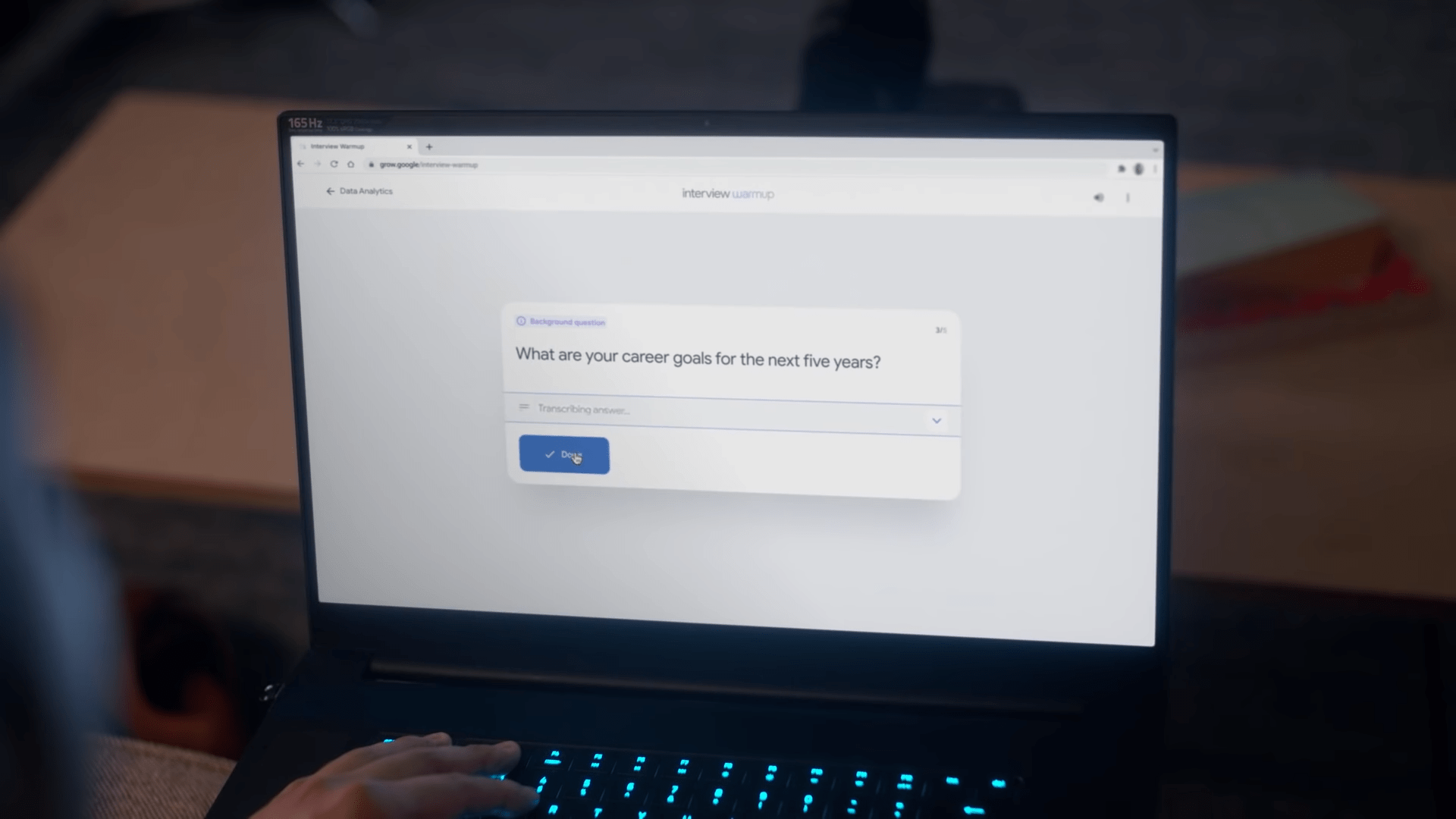Google tests your interview skills with AI

Google has found a new use case for large AI language models: Job interviews.
Recently, Google unveiled new products and software at its I/O 2022 conference. Google CEO Sundar Pichai specifically highlighted the importance of large language AI models for the further development of artificial intelligence and new Google services during his keynote. Now Google is showing a possible use case for the technology: interview training for job applications.
Interview Warmup uses AI for text analysis
The AI tool "Interview Warmup" asks questions in job application training, transcribes the answers and analyzes them. It checks how often you repeat a word, whether the words are related to the topic of the application, and whether you address various relevant topics in the interview. For the latter analysis, Google uses machine learning.
Video: Google
The system asks questions in three categories, according to Google:
- Background questions cover your past training and experiences. They can include questions about your education, past jobs, interests, and goals.
- Situational questions cover how you’ve dealt with situations in the past and how you might deal with situations in the future.
- Technical questions cover knowledge and skills specific to your field. They often test how you would use your technical knowledge to solve problems in hypothetical situations.
Advice for better job interviews
A text analysis after recording the answers gives hints on how to improve your conversation skills in a possible job interview. Google deliberately refrains from giving a rating. Instead, a factual analysis is intended to provide clues as to where there is room for improvement in the way you express yourself. After the analysis, you have the option of retesting the same questions and answering them more specifically or starting a new training session.
Google offers Interview Warmup as a training tool specifically for careers in Alphabet. A set of general questions is available for free directly in the browser for those interested. Interview Warmup currently only supports the English language, but is to be expanded.
AI News Without the Hype – Curated by Humans
As a THE DECODER subscriber, you get ad-free reading, our weekly AI newsletter, the exclusive "AI Radar" Frontier Report 6× per year, access to comments, and our complete archive.
Subscribe now